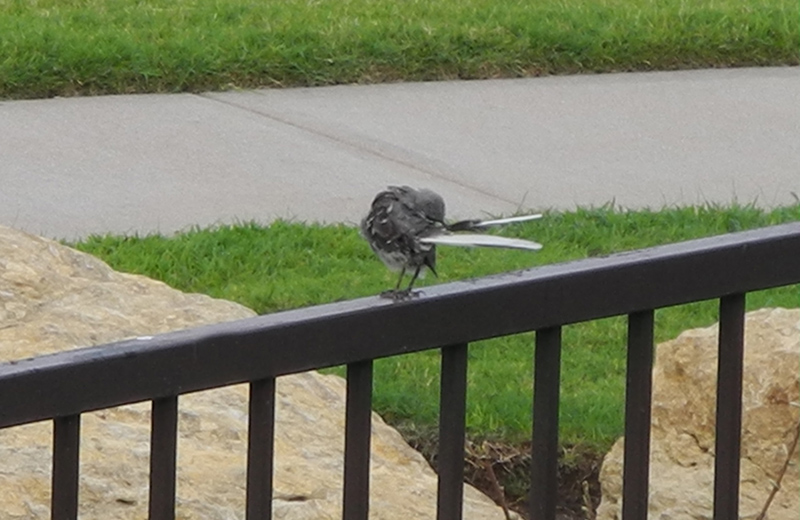 A couple weeks ago, I read an article on The Nation website called The Democracy of Difficult Fiction that I’m still rolling around in my head. I write about reading a fair amount because it’s through reading that I learned the most about writing.
A couple weeks ago, I read an article on The Nation website called The Democracy of Difficult Fiction that I’m still rolling around in my head. I write about reading a fair amount because it’s through reading that I learned the most about writing.
I discovered most things about writing through sitting down and doing it, but it was much easier to sit down and write, at first, because I had read a lot before ever thinking about taking writing seriously, in my early 20s.
I’ve always believed reading to be important. Sure, in large part (especially these days), I find curling up on the couch with a book and no distractions a big middle finger to all rushing about and “tl;dr” (too long; didn’t read) attitudes I see online for anything over 300-500 words. We know reading fiction opens people up to empathy because readers of fiction can easily imagine the circumstances that can lead to people ending up in situations others dispel as “their own damn fault!”
There are plenty of benefits to reading.
The importance of reading fiction has never been lost on me — reading fiction made me more aware of everything in my life.
The Art of Serious Noticing
Especially in a group of four or more, I tend to go quiet. If I know you well and it’s a one-on-one meeting, I must sometimes make a conscious effort to not babble. But put me around three or four others (or more!), and I am usually so silent that some ask if I’m okay.
I share my life with an artist. We’re each fine just sitting around and watching things go by. We live at an intersection that’s busy enough to have the occasional drama occur, but not so busy that it’s a distraction. On drives, we often notice things far off in fields. Lately, we’ve noticed this little guy with the white tail:
 When I read — and this goes all the way back to childhood — I feel connected to things bigger than me. I don’t know if it’s because I felt that way from always being outside, or if I felt that way about outside because of reading, but there comes a certain awareness of things I find [mostly] comforting in life that, on some level, I must attribute to reading.
When I read — and this goes all the way back to childhood — I feel connected to things bigger than me. I don’t know if it’s because I felt that way from always being outside, or if I felt that way about outside because of reading, but there comes a certain awareness of things I find [mostly] comforting in life that, on some level, I must attribute to reading.
From the article:
Great writers extend our capacity for “serious noticing…”
Reading in a Digital Age
The last thing I wrote, here, was about finding focus in a digital age. So this bit from the piece in The Nation piece got my attention:
Are digital media “reshaping our understanding of what it means to read?” She recasts the question more pointedly later in the book: “Are business practices reshaping cultural reading practices — and if so, with what consequences?”
…Every minute, it seems, a new link snags us, an article or post teases us with a sexy headline, promising us we can be in the know if we just click and spend a few seconds looking at it.
Online reading invites quick glances. [Robin Sloan wrote a wonderful essay about this called “Fish,” discussing how we don’t return to the same online content much — we consume and move on. It’s interesting that the final pages of Sloan’s book, Mr. PENUMBRA’S 24-HOUR BOOKSTORE, are pages I’ve returned to more than any other novel…and that “Fish” is something I return to as well.]
This really hits what I like about reading. In a time when people listen to audiobooks and podcasts at 2X speed while multitasking and skim articles online (which, I’ll admit, is a habit many have always had…it’s not wholly a digital problem), I liked this from The Nation piece:
He prizes the kind of “slow reading” that allows us to appreciate the rhythms and voices and atmosphere of a book, to take it apart as one might a clock, in order to figure out how it works.
When reading a novel, I love the cadence of it all. The last book I rushed my way through was the last Harry Potter book, simply because the last couple books didn’t do it for me, but I was invested in the series enough to want to see what happened. But with most fiction, I like taking the time it seems the author intended the reader to take.
For me, reading is like visiting a place. I like to experience a location when traveling, not zip from landmark to landmark for quick photo ops and moving on to say “Look at all I saw!” (Unless that is the purpose of a particular trip.)
Teaching Reading
There’s a bit in The Nation piece about Common Core standards and their effect on reading in school. A bit from that section:
The national educational standards known as Common Core mandate more “informational” reading, necessarily reducing the amount of fiction read in the classroom. By the 12th grade, 70 percent of a student’s reading is supposed to be nonfiction. As a public-school administrator recently explained, “We look at teaching literature as teaching particular concepts and skills. So we maybe aren’t teaching an entire novel, but we’re ensuring that we’re teaching the concepts that that novel would have gotten across.”
I cringe at the thought of that. With the exception of only a couple teachers and people I’ve known in my 46 years, I trust no one else to say, “Eh, this is the gist of that novel — that’s what you would have pulled from it had you actually read it…” (And the reason I trust only a couple teachers and a handful of people I know with such an important judgment is they are the people who repeatedly said, “I think you’ll like this — read it,” and were always right.)
I rarely get political or express my personal feelings about things, here (well, outside of writing and reading that is), but taking the word of others in regards to books is one of the big problems with organized religion. Instead of reading books and deciding what to carry from them, trusting others to do the work for you can be dangerous.
Trusting an organization that seems more fixated on order and discipline to tell students the gist of a novel is like a religious extremist telling followers that it’s their religious duty to hate those not like them. It’s not the point of any religious books I’ve read (and none of my religious friends harbor hatred in their hearts for others because they actually read the books important to them), and I know that what I’ve carried from novels has often not been what others took away from them.
There is no serious noticing when others tell you what to think.
Empathy is not something that comes from others what you should have felt.
Reading As an Act of Defiance
Reading has become another thing to me in recent years: the act of claiming peace in a supposed hurried world.
I will never say we aren’t busy. I know someone who goes to work in a sandwich shop and when she’s done there, she works at Home Depot. She’s a single mother who gets one day off each week. She goes to church and prepares for the week. In between all the cracks, she makes sure her daughter’s doing well.
But I know far more people who can provide detailed plots for a dozen TV shows. They reply to everything that comes through their phones immediately because they have push notifications set for every possible thing. YouTube is a nostalgia machine where anything they can think of from their past is right there waiting.
There is nothing wrong with any of those things if that’s what one chooses to do with their time. But when the same people who spend weekends binge-watching shows on Netflix say they never have time for anything, I have a hard time believing it. They have plenty of time; they just choose to spend it doing things that seem to make them feel like they have no time to slow down.
Reading, for me, is about slowing down. The times I’m not as in control of my time (or even life) become apparent when I think, “I’ve not read anything, lately.”
Not reading is my canary, warning me that the air is getting thin — and the way to fill my lungs with something good is to spend an afternoon on the couch reading; to sit at my desk and make notes about a book; to go to a park and read.
The slow act of reading is a reminder that I am in control of my life.



Leave a Reply